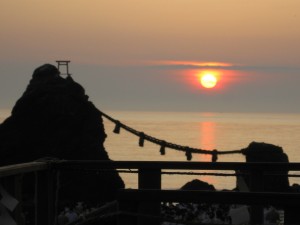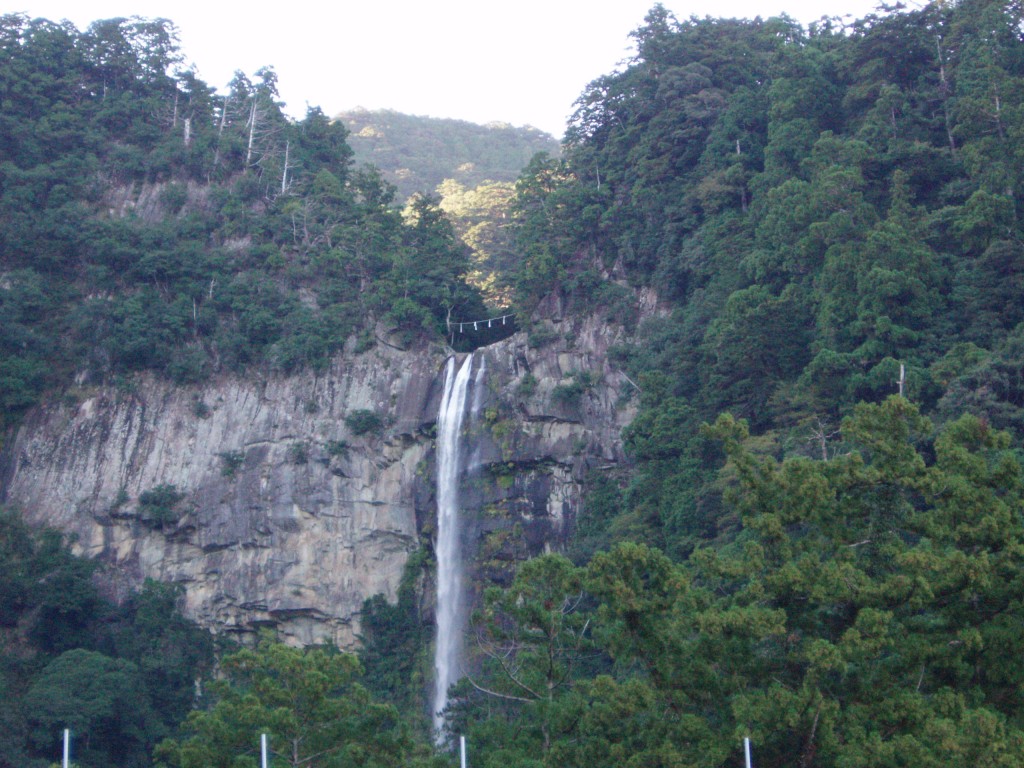If you punch the words ‘Shinto + pantheism’ into google, you get a rather amusing mix of references. Some assert that the religion is a form of pantheism and others are adamant that it is not. Official commentators, such as Jinja Honcho, maintain it is not. I think this is because Shinto worships kami rather than nature itself. One prays to the  spirit in the rock, rather than to the rock, does one not?
spirit in the rock, rather than to the rock, does one not?
Since Shinto is often described as a nature religion, it’s rather puzzling when you walk around the big cities in Japan that some of the shrines have nothing to do with nature whatsoever. There are shrines, for example, perched on the top of high-rise buildings. I once asked a priest about this, and he told me there was nothing strange about it because Shinto is not the worship of nature.
Priests regularly purify cars as part of their work, and since cars are considered to be destroying nature as we know it, it suggests that Shinto’s concerns are more to do with spiritual pollution than environmental pollution.
So how about panentheism? What is it exactly?
Panentheism postulates that God is present in everything but also extends beyond. In other words, God not only equates to the universe and the world around us, but is also greater. This fits in with a creator God. Pantheists on the other hand believe that the universe is a divine body in itself and do not believe in personal or creator gods
Since Shinto evolved organically and embraces contradiction, there is probably no clear answer to its relationship to nature. Why should there be? The need to define is a Western disease, stemming from the determination to pin down in words that which transcends logic. Pantheist? Panentheistic? Who cares… Simply a sense of awe is enough…


The need to define is a Western disease? Easy cop-out. You dodged the most difficult question the article was asking. Nice.
Since there’s no official doctrine, dogma or definition of Shinto, the question is a non-question. Like Zen, Shinto sees words as limited and limiting. In that sense it doesn’t matter what label is used. What matters is feelings, connections and intuition. Open your heart! (A message that would seem to be particularly apt in your case.)
I do think that referring to the need to define as a Western “disease” is unnecessary. Maybe it is a disease, but this disease comes part in parcel with many helpful scientific discoveries.
You make a fair point, Thom. Like all aspects of human endeavour, there are good and bad sides depending on the use to which it is put. ‘Disease’ was perhaps an unfortunate choice of words, but it does seem to vitiate a holistic approach to life.